
Wheat procurement touches 30.1 MT till date
The Dollar Business Bureau The country is looking at good wheat output this year. Wheat procurement is generally done during April to March wheat marketing year. But this year procurement of wheat was taken up a month earlier by the Food Corporation of India. Till now about 30.1 MT of wheat has been procured by the FCI and other state agencies in the ongoing rabi marketing season of 2017-18. This is far beyond last year's total purchase of 22.9 MT of wheat. Wheat is procured from the farmers at a minimum support price which is now Rs 1625/quintal a marginal increase of Rs 100/quintal from the price offered last year. The government buys wheat from the farmers at the MSP rate specified to ...
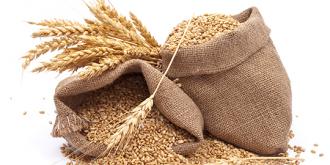
Govt may hike import duty on wheat to check imports
Source: PTI The Centre may raise import duty on wheat to 25% from the current 10% to restrict overseas purchases when domestic stocks are surplus. In August, the government imposed a 10% import duty on wheat – for the first time since 2006 – after private flour millers started importing from Australia amid sluggish supply of high-protein wheat varieties used to make pasta and pizzas. Millers are resorting to imports despite surplus stocks of other varieties of wheat with FCI, the nodal agency for food grain procurement and distribution. “The Food Ministry has proposed raising import duty on wheat to 25% from 10% to cut imports and protect the domestic market. The matter will be discussed at a meeting with the revenue department ...
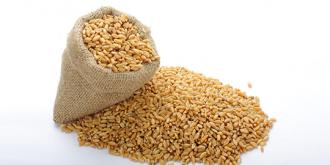
Government imposes 10% import duty on wheat
Source: PTI The government on Friday imposed 10% import duty on wheat till March 2016 to curb shipments and liquidate poor quality grains lying in FCI godowns. A copy of notification in this regard was placed before the Lok Sabha by Finance Minister Arun Jaitley. Jaitley said that the notification dated August 7 seeks to "impose basic customs duty of 10 per cent on wheat till March 31, 2016 under Section 159 of the Customs Act 1962." At present, there is no import duty on wheat. Private traders are importing the grains on lower global prices and lack of high-quality grains in the domestic markets. Imports are happening despite bumper domestic wheat output in 2014-15 crop year and surplus stocks ...
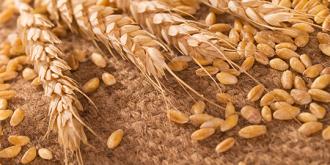
Wheat imports: Millers pitch for imports amidst quality concerns, say no to import duty
Sai Nikesh | The Dollar Business Keeping in view the consumers’ interests, Indian Flour Millers Federation, on Friday, urged Government of India not to impose duty on wheat imports. Veena Sharma, Secretary, Roller Flour Millers' Federation of India (RFMFI), confirmed this with The Dollar Business, while also informing that an official representation was submitted to the government in this regard. Speaking further, she said “We have not imported anything in the last one decade. However, the importing situation occurred as a result of the sale of sub-standard quality wheat to millers.” “Government relaxed procurement norms and procured rain-affected sub-standard quality wheat, which is being sold to the millers. When we get sub-standard quality wheat under Open Market Sale Scheme (OMSS), naturally, ...
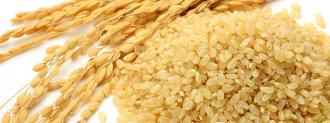
Indias food security programme to have impact on world market: Report
The Dollar Business Bureau The large coverage of the National Food Security Act (NFSA) will inevitably intensify the requirements for food grain procurement, storage and distribution. And, given the size of India’s stocks compared to the world’s total utilisation, there will also be considerable potential impacts on the world market, said an Organisation for Economic Co-operation and Development (OECD) report. In 2013, the National Food Security Act (NFSA) was passed, which aims to provide food security to 67% of the population by distributing a fixed amount of subsidised grain each month. The government of India implements its price stabilisation and food security policies through the Food Corporation of India (FCI). FCI has been successful at providing remunerative prices for ...

Food grain sale to continue under Open Market Scheme
The Dollar Business Bureau The Government of India (GoI) has decided that the sale of food grains for the year 2015-16 would continue through the existing Open Market Scheme (OMS). The information to this effect was provided to the States by the Department of Food and Public Distribution, Ministry of Consumer Affairs, GoI, on Tuesday. In an official release, the government said that it has decided to continue the sale of wheat in the domestic market under the OPS scheme, but only in subject to specific changes. According to the first such modification, the sale of wheat under the above-said scheme would be implemented after March 31, 2015, but only in the non-wheat procuring States. The non-wheat procuring States ...
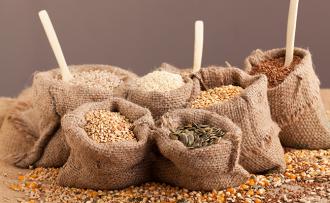
GoI says no to FCI restructuring, supports NFSAs recommendation
The Dollar Business Bureau The Union Minister of Consumer Affairs, Food and Public Distribution, Ram Vilas Paswan, on Thursday said that the Ministry is completely against the restructuring of Food Corporation of India (FCI), as recommended by the High Level Committee’s recommendation. In this regard, the Union Minister said, “The Government has decided not to accept the recommendation of High Level Committee on restructuring of FCI regarding cut in the coverage of the National Food Security Act (NFSA),” adding that the Ministry’s views over the recommendations has been sent to the Prime Minister’s Office. Stating that the beneficiary coverage at the level of 67% as provided by the NFSA would continue, the Minister said that enough steps have already ...
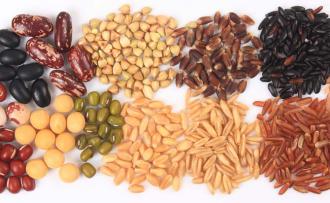
Increased food grain production to boost exports
The Dollar Business Bureau The Indian Department of Agriculture and Production on Wednesday released the 2nd advanced estimates of the major crop production for the FY2014-15. The food grains production stood top among the other crop estimates for the year, followed by oil seeds, cotton and sugarcane. According to the statistics, the food grain production during FY2014-15 was estimated at 257.07 million tonnes, which is the fourth highest quantity of annual food grains production in the country. The increased food grains production will definitely come as a challenge for the Food Corporation of India in storage allocation and might also challenge the government’s decision to offload the excess stocks. However, the estimated food grain production for FY2014-15 is lower than 265.57 ...


